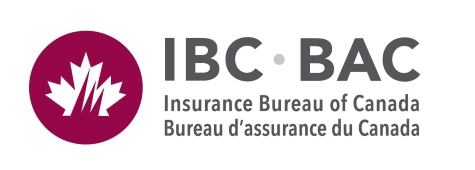Spring may be slow arriving but it's a good time to inspect your oil tank
Safety tips for homeowners to prevent dangerous and costly spills
HALIFAX, April 23, 2014 /CNW/ - After a challenging winter season, it's a good time for homeowners, who heat their property with oil, to inspect their oil tanks. Heating season is coming to an end and Insurance Bureau of Canada (IBC) reminds homeowners to take a look at their oil tanks to make sure there aren't problems that may lead to dangerous and costly spills.
"Homeowners with oil tanks need to be diligent in having their tanks inspected regularly and ensure their proper maintenance," said Amanda Dean, Vice President, Atlantic. "Oil spills can be expensive and difficult to clean up and can have a devastating impact on families. If you have a tank, ask your insurance professional for more information on your home insurance coverage."
There are over 1.1 million households using oil for heat in Canada every year. If there is a spill or leak of oil from your property, you could be entirely responsible for all these costs. No one needs this expense or hassle; this is why it is even more critical to be aware of the condition of your tank and to ensure its proper maintenance.
IBC has the following tips for homeowners with oil tanks:
Here are some considerations that homeowners should take into account when making decisions about how best to protect their property. Homeowners should always consult licensed maintenance and service professionals to ensure that the selection and maintenance of their oil tank complies with the applicable provincial oil tank standards and building code requirements.
Buying a new domestic oil tank:
- When buying a new tank, ask your supplier about the many different oil tanks on the market and what is known about their comparative performance.
- Ensure your tank is certified by the Standards Council of Canada (SCC) or the Underwriters Laboratories of Canada (ULC) and meets your insurers' minimum requirement.
- Ensure the installation of your tank is done by a qualified professional and meets your provincial building code and/or regulations.
- Avoid in-ground installation of oil tanks as many insurers will not insure a home with an in-ground tank.
- Have a release barrier (drip tray) to help contain any leakage.
- Never buy a used tank. It's almost impossible to know what you're getting.
- Never transfer oil from your old tank into your new tank.
Maintenance:
- Have your oil tank inspected regularly by a licenced heating service professional. You may want to hire a certified technician to carry out annual examinations. Also, tanks should undergo more comprehensive inspections at least every 3 to 5 years, depending on whether the location of the tanks is indoors or outdoors.
- Tanks exposed to the elements have a shorter life span. If possible, have your tank installed indoors or sheltered from the elements.
- Contact a heating service professional if there is moisture on the tank or if there is an odor of oil.
- Tank maintenance is your responsibility.
- Conduct regular visual inspections of your tank. Look for signs of corrosion like rust lines and pit holes.
- To prevent bacteria from growing in your tank, avoid letting the tank empty during off-season.
- If you're uncertain about the age or condition of your tank, call your fuel distributor to do a visual inspection.
- Ensure your fuel oil distributor is inspecting your tank when oil deliveries are made. Ask your supplier if this is part of the delivery service.
- Supervise the filling of the oil tank to reduce the chances of a spill.
- Know the expected life span of your tank. Some provinces have regulations dictating when your tank must be replaced.
- If you own a metal tank, speak with your insurance representative about any stipulations in your home insurance policy regarding its replacement.
If you discontinue oil heat, you should:
- Have an oil technician come for proper removal of the tank;
- Ensure the filler pipe is sealed or welded closed and advise your supplier; and
- Contact your local authority to ensure you comply with all the requirements for proper tank removal.
Domestic Oil Tanks and Your Home Insurance Policy
For more information on oil tanks and your home insurance policy click here: http://www.ibc.ca/en/in_the_community/loss_prevention_tips/oil_spills.asp
About Insurance Bureau of Canada
Insurance Bureau of Canada (IBC) is pleased to celebrate 50 years as a valuable resource for insurance information. Since 1964, IBC has been working with governments across Canada to make our communities safer, championing issues that directly affect Canadians and the property and casualty (P&C) insurance industry. IBC is the national industry association representing Canada's private home, car and business insurers. Its member companies represent 90% of the P&C insurance market in Canada. The P&C insurance industry employs over 118,600 Canadians, pays more than $7 billion in taxes to the federal, provincial and municipal governments, and has a total premium base of $46 billion.
To view media releases and other information, visit the media section of IBC's website at ibc.ca. Follow IBC on Twitter @InsuranceBureau or like us on Facebook.
SOURCE: Insurance Bureau of Canada

If you require more information, IBC spokespeople are available to discuss the details in this media release. To schedule an interview, please contact: Steve Kee, Director, Media & Digital Communications, Insurance Bureau of Canada, 416-362-2031 ext. 4387, [email protected]

Share this article